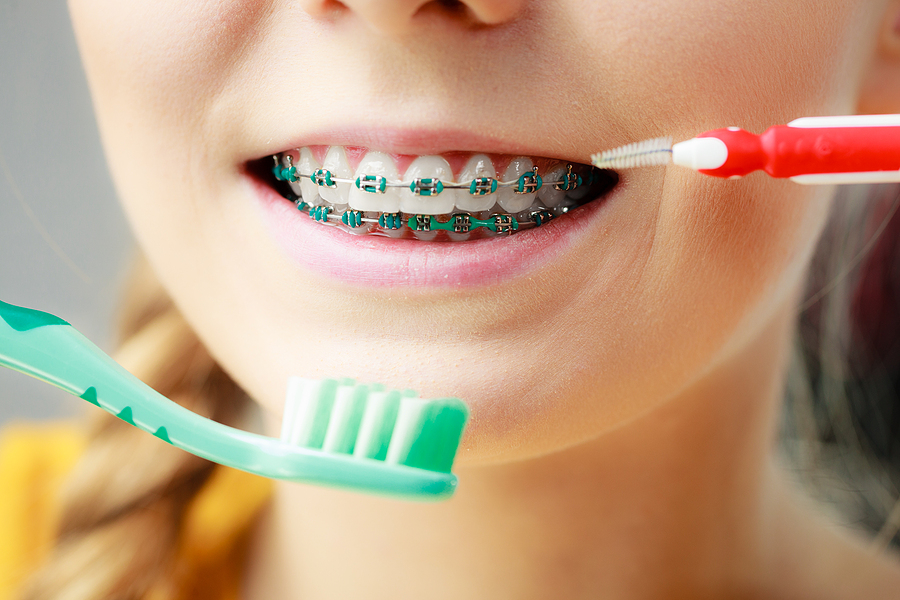Do You Have Adequate Bone to Support an Implant
Posted by Gannon Lee on Jun 13 2021, 09:42 PM
Dental implants are a safe, effective, and attractive option for tooth replacement. However, not everyone is a good candidate for dental implants. A thorough dental examination is required to ensure there is enough bone to support the implant.
What Is A Dental Implant?
Dental implants are permanent restorations that replace the root of a missing tooth with a titanium post. The post is implanted into the jaw, where it causes the surrounding bone to grow around and fuse to the post in a process called osseointegration. This fusion creates a solid base for a replacement tooth to be placed on top of the implant. When implants are used to replace a single missing tooth, they are referred to as single-tooth dental implants or “dental implants.”
Dental implant surgery requires a number of visits to the dentist’s office. The first appointment is when the implant is placed. Abutment posts are then placed on the implant, which protrudes through the gums and holds the crowns or dentures in place.
Because osseointegration can take several months to occur, a temporary crown is placed on top of the abutment to allow the patient to chew and speak normally during the healing period. Once the gum has healed and the jawbone has grown around and fused with the implant, the temporary crown is removed, and the final restoration can be placed on top. Crowns are either made of porcelain, zirconia, or another ceramic material and are cemented or screwed into place on top of the abutment posts. The crowns are custom-made to match the color, shape, and size of your natural teeth to provide a natural appearance. Dentures are also an option when multiple teeth are missing. All-on-4® is a method that uses four strategically placed dental implants to support a full arch of fixed bridgework. This method eliminates the need for a removable denture appliance and makes eating, speaking, and smiling much easier.
Combining dental implants with other forms of treatment, such as periodontal therapy, bone grafting, and sinus lifts, can make it possible to place and restore implants in patients who
Advantages of Dental Implants
Dental implants are an excellent long-term option for replacing missing teeth. Unlike dentures, they eliminate the dietary restrictions that come with traditional tooth replacement methods. Since they are permanently affixed to the mouth, you don’t have to worry about them slipping around in your mouth while you talk or eat. They also prevent bone resorption from occurring in the jaw and gums where the original teeth roots once were. This prevents the jawbone from shrinking over time, which can cause issues such as premature aging and a sunken appearance. The implant provides support to the jawbone to prevent it from deteriorating. This ultimately improves the overall appearance of the face.
Is A Dental Implant Right For Me?
A good candidate for dental implants is anyone who is missing one or more teeth and has healthy gums and sufficient bone in the jaw to support dental implants. A patient who is missing too many teeth and does not have enough bone to support implants may still be eligible for dentures supported by implants. In this case, the denture will be made to rest on a number of sturdy implant posts that will replace the missing teeth and some of the gum tissue as well. Then, the patient’s jawbone will have time to heal and grow around these artificial roots, creating a stable foundation for the new dentures. This process can take several months, but patients can usually walk out of our office with a brand-new smile in place on the same day the implants are placed.
If I Don’t Have Enough Bone, Can I Still Get Implants?
Dental implants require adequate bone structure in order to be placed properly. However, if a patient does not have enough bone structure, there are several options that can help rebuild the bone in order to place implants successfully.
In some cases, bone grafting can help replace lost bone tissue and allow for the successful placement of dental implants. This can often be done using the patient’s own bone material harvested from another area in the jaw or elsewhere in the body. In more complex cases, artificial materials or donor tissue may be used to rebuild the jawbone. While grafting is initially a bit more invasive than using artificial bone material, it can result in a more natural appearance after the process is complete.
If you would like more information on dental implants, please contact us or schedule an appointment for a consultation.



